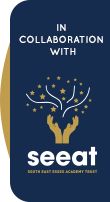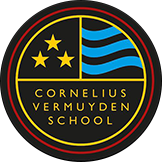Reading
Introduction
Our curriculum at Cornelius Vermuyden aims to cater for the individual strengths and needs of every student, enabling each one of them to make outstanding progress and allowing them to achieve their goals.
We believe that developing skills in literacy is about learning to use language to express, explore and communicate our thoughts, ideas and feelings with others. We do this through speaking, listening, reading and writing, and getting better at literacy means making progress in each of these areas.
Reading and literacy skills open doors and allow our students to access all aspects of the curriculum, whilst improving oracy, communication and problem-solving skills. We owe it to our students to give them the very best literacy skills in order to improve their chances in life, and to enable them to succeed in whatever path they choose.
The Matthew Effect
It is proven through the studies of psychologist Keith Stanovich that children who learn to read in the first three years of their education become fluent readers. They read more, learn more vocabulary which then enables them to read more and comprehend more advanced texts and so they advance further.
The children who fail to learn to read, read less, are less fluent, have a poorer vocabulary, comprehend less and the gap just keeps on growing. It is the principle of ‘The rich get richer and the poor get poorer’. This is why it is essential that all children are offered a structured reading programme.
Whole School Strategies
Form Time Reading – The Big Read
Each year group has one tutor session dedicated to reading each week. Year 7, 8, and 10 participate in the Big Read on Wednesdays, while Year 9 participates on Mondays.
This session is delivered by form tutors who have received training on reading techniques and strategies. Each session lasts 20 minutes and adheres to the following structure:
- Consolidation of what has been previously read
- Teacher-led reading with strategic questioning
- Summary and prediction questioning
Reading Books by Tutor Group
| Tutor Group | Book Title |
|---|---|
| 7E1 | Harry Potter and the Philosopher’s Stone |
| 7E2 | The Many Worlds of Albie Bright |
| 7E3 | Percy Jackson and the Greek Gods |
| 7E4 | Dragon Mountain |
| 7E5 | Escape Room |
| 8D1 | The Curious Incident of the Dog at Night-time |
| 8D2 | A Monster Calls |
| 8D3 | A Secret of Birds and Bone |
| 8D4 | When the Sky Falls |
| 8D5 | Boy, Everywhere |
| 9C1 | The Survival Game |
| 9C2 | The Hunger Games |
| 9C3 | Coram Boy |
| 9C4 | Bite Risk |
| 9C5 | The Knife of Not Letting Go |
| 10B1 | Buddy |
| 10B2 | When I was Joe |
| 10B3 | Splinters of Sunshine |
| 10B4 | Ketchup Clouds |
| 10B5 | I am Malala |
| 10B6 | Terror Kid |
| Intervention | When I was Joe |
Reading in English
The texts studied in English are specifically chosen to ensure that students are exposed to a range of cultures, experiences, and opinions, helping to develop empathy and critical thinking.
| Year | Texts |
|---|---|
| Year 7 | Boy (Dahl), A Sound of Thunder (Bradbury), The Road to Canterbury (Serraillier), A Midsummer Night's Dream (Shakespeare) |
| Year 8 | The Boy in the Striped Pyjamas (Boyne), Anne Frank's Diary, Frankenstein (Pullman), Animal Farm (Orwell), Much Ado About Nothing (Shakespeare) |
| Year 9 | Of Mice and Men (Steinbeck), Romeo and Juliet (Shakespeare), Edexcel Poetry Anthology: Conflict |
| Years 10 & 11 | Macbeth (Shakespeare), A Christmas Carol (Dickens), An Inspector Calls (Priestley) |
Tiered Reading Provision (Years 7 and 8)
Group 1
All students in Years 7 and 8 have a dedicated reading lesson. Those with a GL banding of 4–9 build on their secure reading foundation. Lessons develop comprehension, vocabulary, fluency, and analytical skills.
Group 2
Small group sessions focusing on the 5 reading pillars: oral literacy, phonological awareness, phonics, fluency, vocabulary, and comprehension. Guided reading enhances expression and confidence.
Group 3
Intensive phonics-based intervention using the adaptive Lexia platform, supported by an LSA.



